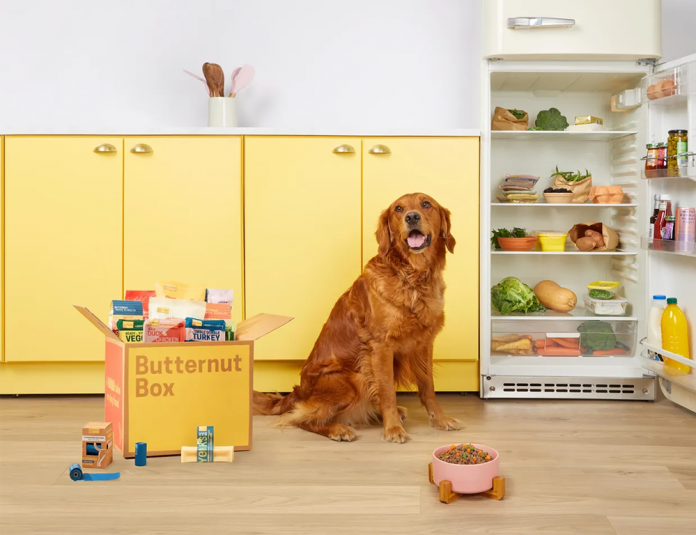Europe’s largest fresh dog food brand, Butternut Box, takes its environmental responsibilities as seriously as its mission to “deliver health and happiness to dogs and their humans”. The company has partnered with sustainability data management platform, Sweep, to build business resilience and reduce environmental impact, as group sustainability manager Alisa Heimann explains.
Butternut Box was founded in the UK by friends, Kevin Glynn and Dave Nolan, after seeing the positive effects that home-cooked food had on Dave’s rescue dog, Rudie.
Today, the company employs over 900 people, is B Corp certified and cooks up a range of dog meals using ‘human-quality’ ingredients for seven different markets across the UK and Europe, via a direct-to-consumer retail model.
In April 2023 the company integrated with Polish brand PsiBufet, a leading fresh dog food firm in Central and Eastern Europe.
It has a dedicated manufacturing facility, Rudie’s Kitchen and Ace’s Pantry in the UK, and is currently building a second manufacturing facility in Poland. A fresh cat food brand Marro was also launched in July 2024.
But while Butternut Box operates around three pillars of sustainability: Planet, People and Product, it is well aware of the risks posed to its future operations by climate change.
And so, as passionate advocates of sound environmental management, the company is seeking out innovative ways to limit these risks, including the partnership with Sweep.
Alisa explains: “We are a food company, and if we don’t do something about climate change, it’s going to affect our ability to source our own ingredients in the future”.
Other reasons the company is tackling its ESG impact include protecting its reputation with customers, standing out as an employer, keeping up with growing compliance demands, and staying attractive to investors.
Alisa adds: “We’re a fast-growing company that has received funding from investors. They wouldn’t be as interested in us if we weren’t looking at our impacts, our sustainability. It’s important because they have customers who also care about where they invest.”
Before partnering with Sweep, Butternut Box had already realised some key sustainability objectives, including reducing carbon intensity from its gas usage by 6.5% in 2024.
This was mainly achieved by investing in cutting edge “heat recovery” technology, which recycles “waste” heat from a new cold storage and fulfilment centre to heat the water to boilers used to steam cook the meals.
However, tracking those achievements was still a manual, spreadsheet-based process. For a growing company like Butternut Box, this was becoming unmanageable.
Alisa says: “Spreadsheets were not enough, so we decided to transition to a dedicated platform.”
Butternut Box’s criteria for the new platform included:
Faster and more accurate emissions calculations, providing data feeds on a regular basis
The ability to share data, progress reports and carbon models beyond the sustainability team, to inform better operational and strategic decision-making
Strong Scope 3 measurement and management capabilities, in order to more accurately track the carbon reductions being achieved by suppliers, better reflect them in Butternut Box’s own carbon footprint, and empower the company to take action to reduce them
Data which can be audited by third parties, such as for Science-Based Targets certification.
The team created an in-depth evaluation process, including a task for candidate platforms to model the actual emissions of Butternut Box recipes by linking their product carbon footprints to the amount of each recipe actually produced each week.
Alisa points out that “A lot of the platforms that we looked at couldn’t do this modelling. Sweep was one that could. We see it a platform that would grow with us. Sweep isn’t a black box platform. It’s very open and very transparent.”
Sweep’s integration with Snowflake also proved to be an important factor, as Butternut Box uses Snowflake as its ‘data warehouse’, and the data integration link between the companies make it much easier to upload historic data and offer more dynamic data feeds in the future.
Looking beyond simple carbon emissions data, Alisa emphasises that Butternut Box intends to use the platform to collect and manage a much wider range of Environmental, Social, and Governance (ESG) data.
“We’re not just using Sweep as a carbon accounting platform, but also to collect ESG data. We’re very much looking forward to having it as a central repository of all of our environmental, social and governance data.
“If you add up all this functionality, like audit logs and AI-driven reporting, it’s going to set us up for some of those really complex, involved regulatory reporting requirements, such as CSRD.”




